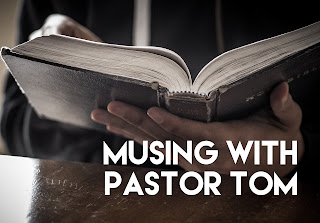Leadership Thought: What Happens When a Believer Dies? (Part 2)
Dear Friends,
Yesterday we examined the question of what happens when a believer
dies as we looked at what existence is like for the believer who has died and
awaits the return of Christ (the rapture) and the final establishment of a new
heaven and new earth.
We looked at Philippians 1:21-24 where Paul writes, “for to me to
live is Christ, and to die is gain. If it is to be life in the flesh, that
means fruitful labor for me. Yet which I shall choose I cannot
tell. I am hard pressed between the two. My desire is to depart and be with
Christ, for that is far better. But to remain in the flesh is more necessary on
your account.”
Here we saw that Paul is speaking of his desire “to depart and be
with Christ,” for he says it “is far better.” He speaks of death as simply a
departure from the body, a departure not into some temporary nothingness where
one resides in an unconscious condition, but one in which we are with Christ,
and if we are with Christ, then we continue existing with Him.
Paul says that state is very much better than our present
state. He could not say that if death was only a state of unconsciousness
without any awareness of Christ’s presence. No, he says life in heaven is far
better because we are with Christ, and we know it.
If this were not true, would it not be better for us to remain in this life on
earth where at least we would have conscious fellowship with Christ?
But secondly Paul writes that as long as we are “at home in the
body, we are absent from the Lord,” and that as a result he would “prefer
rather to be absent from the body and be at home with the Lord” (See 2
Corinthians 5:6-8). Why would Paul prefer to be absent from the body (on earth)
unless it meant to be at home with the Lord in heaven where our souls
experience a form of fellowship and a conscious recognition of His
presence? Paul is clearly expressing his preference. The choice he has is to
either be at home in his earthly body or to be absent from that body and at
home with the Lord. His choice is the ladder-to be home with the Lord, for He
recognizes that means conscious fellowship with Him.
Thirdly, when Jesus is speaking to the thief on the cross, He says,
“Truly I say to you, today you shall be with Me in Paradise” (Luke 23:43). This
can only be taken to mean, “Not only will I remember you when I come in my
kingdom, but already today you shall be with me in heaven.”
And finally, we learn n Revelation 6:9 where John is speaking of
his heavenly vision. He expresses seeing underneath the altar ‘the souls of those
who has been slain because of the word of God, and they are crying out,
“Sovereign Lord, holy and true, how long before thou will judge and avenge our
blood on those who dwell upon the earth”? (v.10) Those individuals are surely
conscious and active and not in some form of unconsciousness or "soul
sleep.".
While we confess that we cannot know everything about our new
heavenly estate, we know we will be in His presence, as we eagerly await that
time when He will return with us to set up His new Kingdom on a new earth where
we will reign with Him for ever and ever. Praise be to God.
Yours in faith and friendship,













